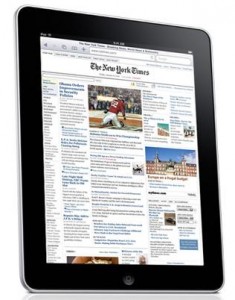What difference did it make if someone cracked an egg open at the big end or the little end if the goal was simply to get to the shell’s contents? How could the Big-Endians and Little-Endians possibly have it so wrong?
Like Jonathan Swift’s character, Gulliver in Gulliver’s Travels, I too am perplexed. Isn’t it the goal of every writer to have his/her material read? Like the Lilliputians, some people have lost sight of that goal, and have fixed their focus on the method rather than the end.
These modern day Big-Endians refuse to recognize the validity of online publications, with some maintaining you aren’t really published unless you’re published in print.
Really!
Technological advances can be tough for some people to accept. Imagine how the scribes of yesteryear felt when their vocation went into a tailspin with the advent of the printing press.
The “publication ” industry of their day had been their personal domain, but the ink dried in their idle quills as reams of print spewed out, compliments of mechanization. But while the printing press dramatically increased the volume of published works, it did little in terms of distribution.
” industry of their day had been their personal domain, but the ink dried in their idle quills as reams of print spewed out, compliments of mechanization. But while the printing press dramatically increased the volume of published works, it did little in terms of distribution.
Enter the Internet.
Writers today enjoy the ability of having their works presented, instantly, to millions of households across the globe, as the World Wide Web continues to shrink our planet and repackage it into tight groups sharing common interests. This powerful tool presents possibilities which are only as limited as the imagination of those who wield it.
As the technologically savvy seek new ways to connect with their world, books, magazines and newspapers are downloaded daily onto iPhones, iPods, Kindles and Blackberries, and with Apple’s new iPad entering the market, this trend will undoubtedly increase. Technology only moves in one direction.
Meanwhile, back in Lilliput, the battle continues.
Photo Credit
“Gulliver’s Travels” DownloadFreePhotos.com Public Domain
“iPad” Apple Computer Inc.



As a reader, I much prefer the feel of a good book in my hands, especially since I shook myself of the nasty habit of nibbling the corners off pages as I read.
But having said that, I confess that 90 per cent of my reading is done with my laptop, and the other 10 per cent (road signs don’t count) from listening to audio books as I work in the tractor.
My writing is done online, but that’s only because it’s not good enough for anyone to want to pay to read. I totally understand the downside if you are a professional writer.
But how’s this for another argument for online writing: Less paper = fewer dead trees, and less glue = fewer dead horses.
In a world in which many writers and artists are finding it increasingly difficult to protect their copyrights (and therefore their livelihoods), some writers may feel that publishing online is less secure and less “protectable” than publishing in print. That may or may not be true, but I can understand the reluctance of those who don’t really want to trust the security of their work to online publishers or resellers. If it’s online, chances are good that it can get ripped off, and pretty quickly at that. I’ve published in print, and (in a smaller way) online. For my own work, I personally prefer print, but that doesn’t mean I reject the other alternatives.
Ain’t technology grand.
I don’t think print or hardcopy is going away any time soon. Even though I publish online, and feel that the online world is filled with wonderful publications including this one we are on, I also think books, magazines, and whatnot will continue to be important. I seek publication in both worlds, feeling that even though they seem totally at odds with each other, they also support each other in some ways as well. And really, do you think people are simply going to give up the feeling and connections they have with printed books and the rest completely? The way I see it, we have the best of both worlds right now. We can instantly access on the web, and we sit under a tree with a new book or magazine. Why not celebrate both options!